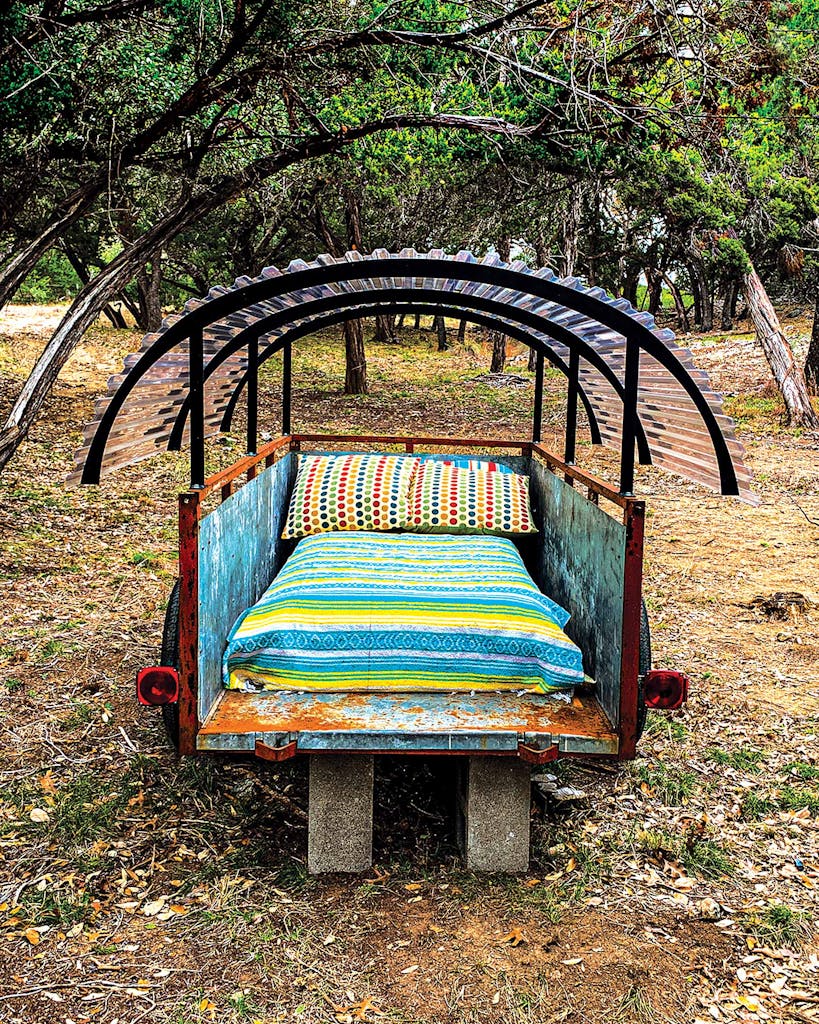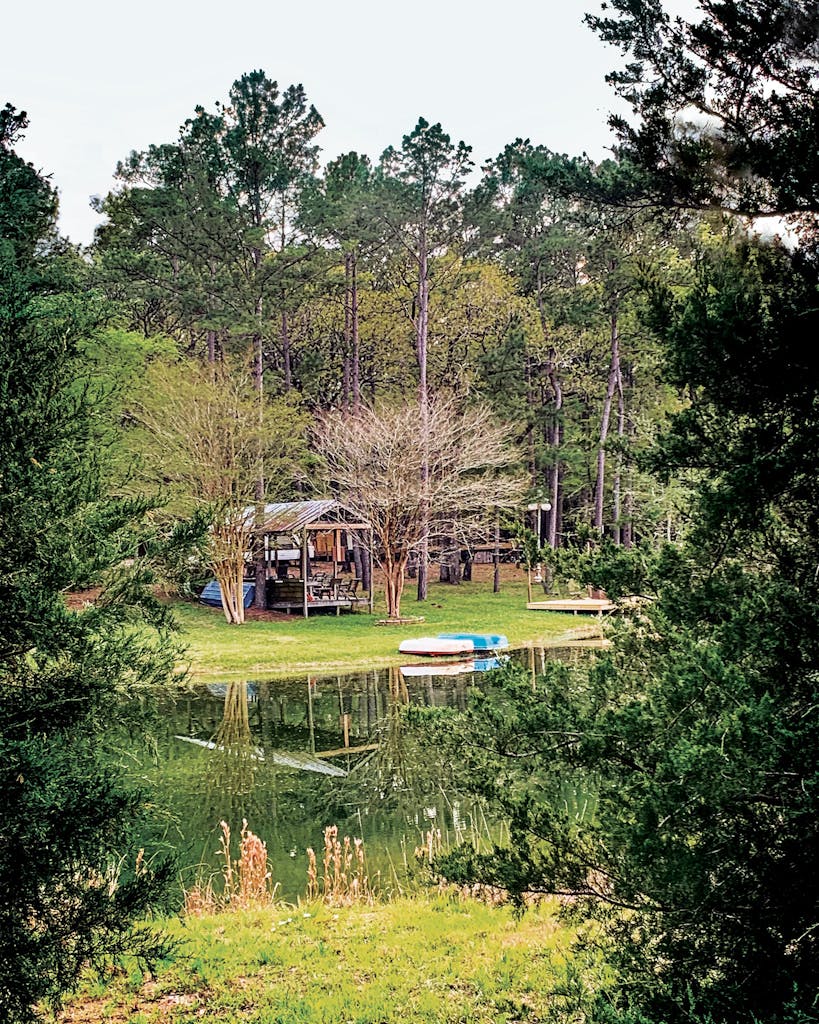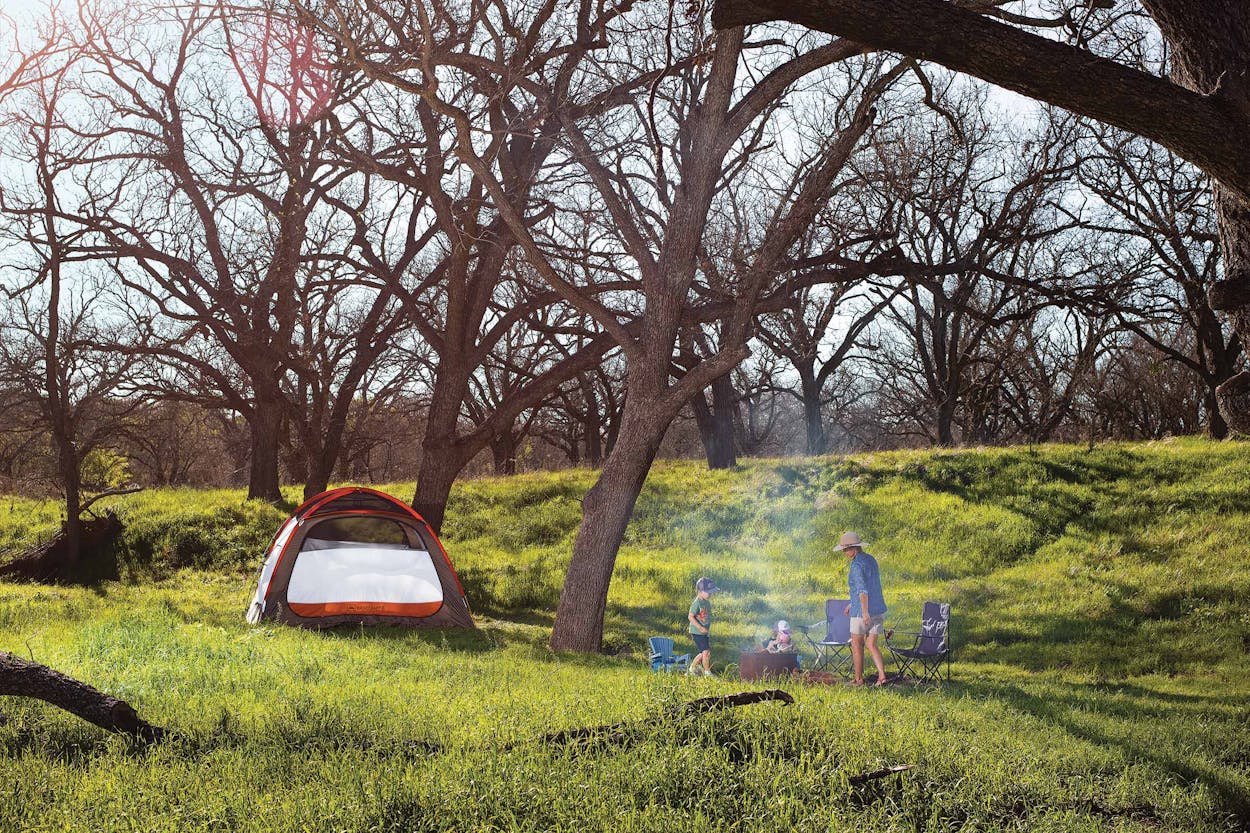Sure, you could drop a few hundred bucks to “camp” in a luxury tree house or air-conditioned yurt, but for many Texans camping still means roughing it outdoors. However, securing a site at a state or national park is no sure bet, particularly on weekends and when many are either closed or operating at reduced capacity to slow the spread of the novel coronavirus. If you’re only now planning that autumn campout, you might have missed your weekend window at a popular spot like Enchanted Rock State Natural Area. If so, consider low-budget private campgrounds, which can be found on sites such as Hipcamp. Like an Airbnb for the outdoors, Hipcamp features for-profit campsites across the country, including more than three hundred in Texas, where landowners welcome visitors to their Instagram-friendly personal oases. Rates are usually modest, and properties range from two acres to more than fifty. The terrain, views, and experiences vary widely. Need running water? A flushable toilet? Better double-check the amenities. Hipcamp also includes small cabins, Airstream trailers, and—yes—tree houses and yurts, if those are more your style. Most allow a limited number of guests at a time, ideal for social distancing. Private campgrounds aren’t unique to Hipcamp, of course, but the site makes it easy to find what you’re looking for. Here are three options not far from popular state parks.
Low Gear Farmstead
Menard
When you arrive at this plucky organic farm on the Edwards Plateau, the terrain might seem a little forbidding. Thorny mesquite scrub and prickly pear abound. Geer Gillespie, who runs the operation with his wife, Logan Bell, will probably greet you at the front gate in a pair of knee-high snake boots. However, just past the old home place, where Bell’s great-grandparents once lived, a rutted trail suddenly descends into a lush world straight out of a fairy tale. Here, tall grass grows in the shade of acres of majestic pecan trees, all of it nestled in rich bottomlands along the spring-fed San Saba River. During a reunion with several old friends in the summer of 2019, we pitched our tents, lounged around the firepit, and floated the lazy San Saba in tubes we brought from home. The composting toilets in the outhouses reminded us that we were pretty far off the grid; the property has no showers or picnic tables (although Gillespie helpfully loaned us his charcoal grill). Because we were paying such a low rate, we weren’t about to complain about the spartan amenities. Bell says she keeps costs to a minimum so folks at all income levels can afford to visit her family’s farmstead. “I love that everyone can appreciate the beauty and magic when you pull into that rolling pecan grove,” she says.
Three campsites (for up to six people), $20 a night. Close to South Llano River State Park (44 miles).

Seco Ridge Campground
Utopia
Woody Golden, a sculptor and former art instructor at the University of Houston, wants to make and sell his own beer, so he built a small brewery on the hillside Utopia property he owns with his wife, Elaine. There’s just one problem: the tiny town is in a “dry” area of Uvalde County where alcohol sales aren’t allowed right now. So the Goldens joined Hipcamp last fall, opening their 42 acres of old-growth cedar to tent campers, glampers (with a king bed in a cargo tent), and people looking for unique lodging (a tasteful bunkhouse converted from an old shipping container). Visitors share a centrally located open-air kitchen and a bathroom with hot showers, but the primitive campsites scattered throughout the property can provide more privacy and seclusion than your typical park campground. “Everybody can go their separate ways when they camp here,” says Woody. The place also offers a tree house for children to play in, disc golf, and an easy hike to sweeping views of the Hill Country—and, unlike at state parks, where the consumption of alcohol is against the rules, he doesn’t mind when his guests imbibe. “Everybody who’s come through has been very considerate and respectful,” he says.
Seven campsites, $30 a night; glamping tent, $50; and the “Bunkhaus,” with a queen bed and bunk bed, $75. Close to Garner State Park (17 miles) and Lost Maples State Natural Area (19 miles).

The Honey Hole
Point Blank
Just about six miles west of Lake Livingston, in East Texas, empty nesters Robin and Steve Bumbera offer primitive camping on fifteen acres of oaks and tall pines. Light breezes sweep down from the rolling hills and ripple across a four-acre pond where campers can swim, float on tubes, or fish for largemouth bass and panfish. “The water is really nice because it’s so clear,” Robin says. “It’s not your typical pond. That’s the only bad part of the fishing—the fish can see you, and they’re like, ‘Nope, I’m not falling for that.’ ” There’s also a covered pavilion with a propane-powered kitchen, a hammock stretched between two pine trees, patio chairs encircling a fire ring, and an outhouse with a composting toilet. Another bonus: campers can choose where to pitch their tents. “People are more than welcome to camp in the woods,” Robin says, “but once they see the pond, they really want to stay close to the water.”
Three campsites (for up to four people), $45 a night. Close to Huntsville State Park (29 miles).
This article originally appeared in the September 2020 issue of Texas Monthly. Subscribe today.
- More About:
- Where to Stay Now









